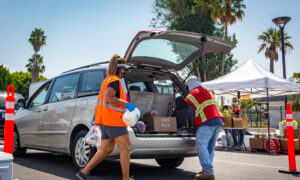Commentary
“Puberty is hard.” I hear that all the time from adults. The messaging is, “We get through it, but it’s hard.” That’s the overwhelming idea communicated from women to girls everywhere.
But is it really that hard for everyone? Is it possible that this message may be amplifying fears rather than reducing them? Is the attempt to validate feelings possibly making it all worse? I believe it is.
Every woman grows from a girl to a woman. Yes, it’s obviously harder for some than others, but I don’t think we should be emphasizing the pain. Sure, it’s not fun at times; there are the changes in the body, the acne, the awkward feelings, the unwanted attention, and of course, the dreaded period. It isn’t always a pleasant time, but it’s not necessarily all bad either, especially if it isn’t anticipated to be so bad.
I think we are leading some girls to believe it’s so scary that some choose to “opt out” and try to be men instead, or maybe just nonbinary—anything to avoid becoming a woman.
I was talking to a mother of a pubescent 11-year-old girl who said her child was scared of puberty. I asked the mom where she got that fear from, since it wasn’t from the mom. It seems that someone planted that idea in her daughter’s head. The mom was aware of the egregious sex-ed and graphic books that are available in the California public school her child was attending. She was convinced that someone influenced her daughter and this fear did not come naturally. This is a concern.
Reminiscing about a few decades ago, we can recall that younger girls didn’t spend their days dreading the idea of growing up. In fact, sometimes we wanted to grow up fast. Many of us awkwardly wore our mother’s high heels, stuffed our bras, longed to wear makeup to appear more grown-up, or fantasized about being cool via our fashion dolls.
I remember a time when we all suffered through our awkward stages, but many of us were excited to develop and get the attention of boys. In fact, getting your period was often a bonding experience among girls, and those who developed late were left out of the club. Adults helped us understand our bodies, but without the obsession. (Although I wish I never saw the books “Our Bodies, Ourselves” or “The Joy of Sex” at such a young age.)
In addition, we didn’t have instant digital cameras and selfies on social media to overemphasize unneeded body awareness. Combine this constant feedback with online influencers, and this is a recipe for self-esteem disaster. Fashion magazines and movie stars were the culprits of the past, but their accessibility and influence paled in comparison to that of social media today. In addition, this was before porn became readily available in our children’s back pockets. This overexposure has changed the expectations of sex and sexual development for young people, both boys and girls.
I invite you to recognize that kids today are growing up at a different time and are saturated with images and messages that reinforce fears of growing up. We should influence girls to simultaneously hold onto their childhood innocence while longing to become the grown-up women they are meant to be.
Let’s help our girls cope with all of the tribulations of adolescence, while helping them build resilience. Perhaps we can give them the message that they will get through this and maybe it won’t even be that bad. Is that too wild?
Obviously, some girls have a harder time than others for a multitude of reasons, but let’s stop globalizing this negative view and amplifying the challenges of puberty. It’s our job as adults to lead our children into adulthood with strength and to remind them that they can do it.
Plus, despite the lies that the trans community tells, there is no way girls can opt out of becoming women. They will have to grow up eventually, and they need to know that. We as adults cannot protect our children from their own bodies, and we shouldn’t induce fear of their bodies either. Puberty is not a disease. We must help them understand that all of the tribulations of puberty are normal, and everyone has to go through it.
Puberty is just one of many challenges our daughters will face as human beings. If they can get through it with resilience, that will set them up to become incredible, strong women.













